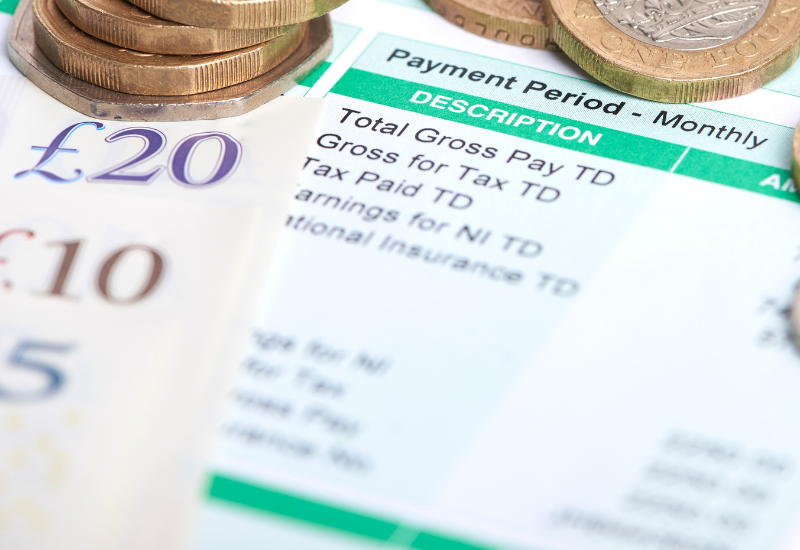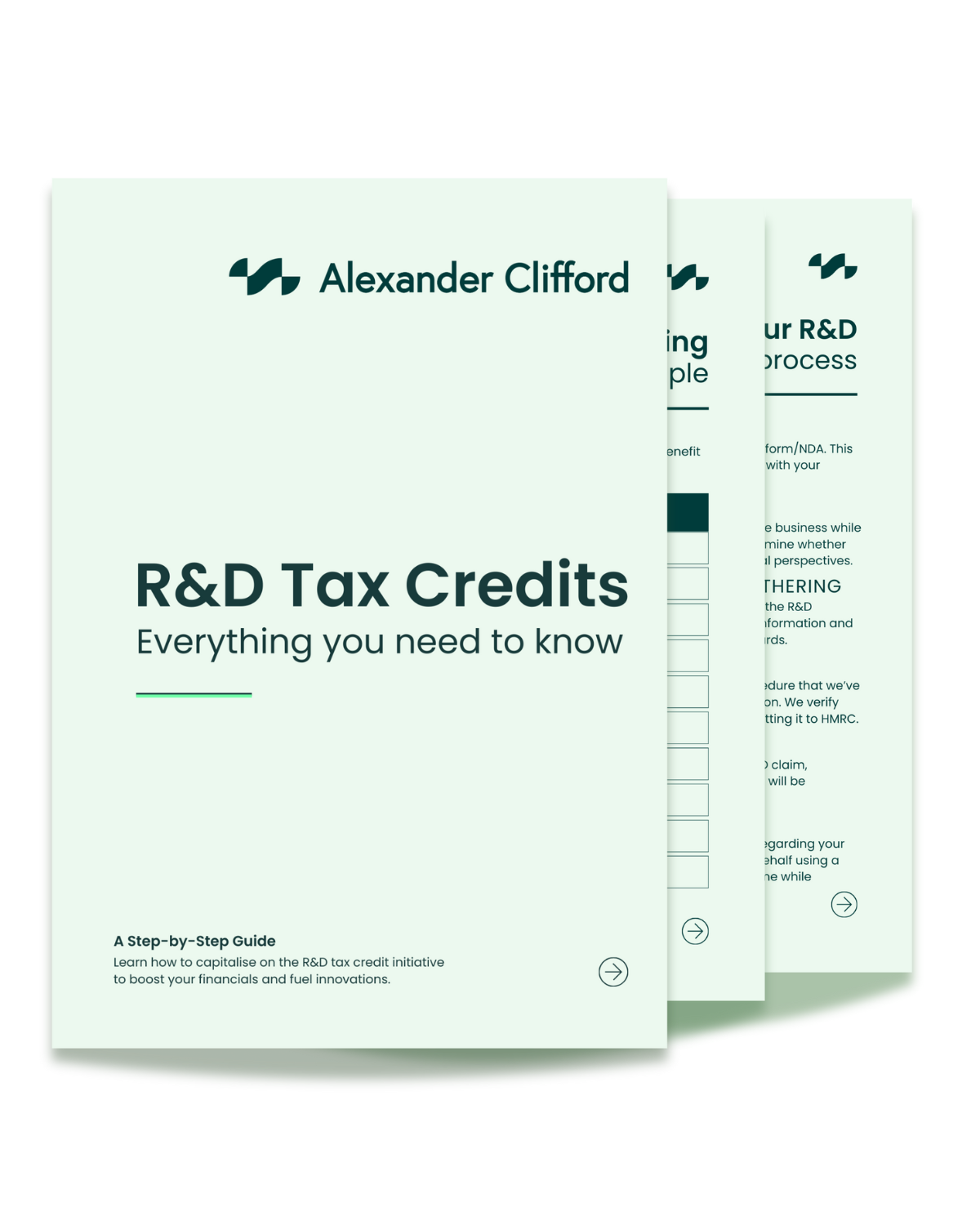Claiming R&D Tax Credits Made Easier
This is the future of science and technology
Claiming R&D tax credits provides your business with valuable benefits for undergoing innovative research and development. By claiming UK R&D tax relief, you can recover up to 27% of your investment, giving you the opportunity to invest in new ideas and tackle challenges with confidence.
No Win, No Fee - We won’t charge until you receive your entitlement
Winning at every step - Very high success rate with HMRC
Your R&D tax advocate - Unwavering support from start to credit
Book a call back

What is an R&D claim?
An R&D claim is the process of compiling and submitting an application to HMRC to receive R&D tax credits for your work in driving innovation in your industry. The R&D tax credit relief is a government incentive designed to support businesses that are investing in cutting edge research and development. By providing businesses with financial benefits, the UK government is ensuring that innovation in science and technology are contributing to a steady economic growth.
Qualifying R&D costs - what you could claim
Take the hassle out of your R&D tax credits claim
Benefit from a free consultation
Start with a quick, no-obligation call with an R&D tax consultant to discover if your project qualifies for R&D tax relief.We’ll tell you if there’s money waiting for you to claim - and how much you could receive.

Let us build your claim
Leave it to the experts to identify every eligible cost and activity.We work side-by-side with you to prepare a rock-solid technical report and financial breakdown, designed to stand up to HMRC scrutiny and maximise your return.

Leave the HMRC paperwork to us
Give us your seal of approval, and we’ll submit your claim and manage all HMRC communication on your behalf.Benefit from R&D incentives and win the full entitlement for your innovation.

Get paid within 28 days
Receive your benefit as a direct cash payment or a reduction in Corporation Tax.While HMRC’s target is 45 days, many of our clients have received their payout in under a month.

Why Alexander Clifford?
We focus on your R&D claim, you focus on your innovations.
We are your dedicated partner in streamlining the intricate process of claiming R&D tax credits. With years of experience and a strong track record of success with HMRC, we specialise in guiding businesses through the complexities of securing R&D tax credits confidently. Our tailored approach focuses on understanding your unique operations and innovations, ensuring a personalised approach to maximise your R&D claims. With a deep grasp of tax regulations and incentives, we take care of the paperwork and research, allowing you to stay focused on what matters the most. We're not just about claiming credits, we're about maximising them.
Our success stories
We acknowledge the significance of genuine client feedback when selecting the right company to partner with.
Frequently asked questions
You have the flexibility to make an R&D tax credits claim at any stage of the R&D process, not solely at the project's conclusion. As long as there are eligible expenses within the financial year you are claiming for, you can submit the claim. Ongoing projects can be claimed across multiple years or even retrospectively, with a two-year window for making amendments.
All R&D claims must be accompanied by a completed CT600, as well as a full computation. The reason for this is to prevent penalties and, essentially, to reduce the chances of receiving rejections from HMRC.
The R&D tax claim has a time limit of two years from the conclusion of your accounting period. Within this period, you must submit your application for all eligible expenditures identified during that specific timeframe. This is because R&D tax credits fall under Corporation Tax relief, and the usual deadline for amending your Corporation Tax return is 24 months after the conclusion of your accounting period.
It’s natural for R&D projects to take a few years to complete. You cannot reuse as previous R&D tax credit claim. You cannot recycle or reuse a previous research and development (R&D) tax claim. Each claim must be assessed independently, considering the eligibility of your qualifying R&D activities and expenditure. However, if your work is ongoing and continues to address technological or scientific uncertainties, a single project can span multiple years for claiming purposes.
The standard deadlines for filing and amending company tax returns are as follows:
1. The absolute deadline for making R&D tax credit claims is within two years of the accounting period in which the R&D expenditure being claimed is incurred.
2. Profitable companies that are aware of the R&D Tax scheme typically prepare an R&D claim within 9 months and one day of the accounting period end when any tax due needs to be paid. This applies to both SME and RDEC claims, and the claim helps reduce the tax liability. 3. For loss-making companies claiming an R&D Tax Credit or an RDEC payable credit, it is beneficial to submit the claim as soon as possible to improve cash flow.
Your accountants can support your R&D tax claim application, provided their knowledge is up-to-date with how to submit an R&D claim as well as the latest roll out of changes to the rates. R&D tax credits demand a thorough understanding of your industry and the R&D initiative to uncover the complete scope of your claim, and potentially, receive your reward.
The method of receiving your R&D tax credits benefit depends on the specific R&D scheme you use for the R&D claim and your company's financial situation. Your preference may also play a role in the decision. The benefit can be received in various ways, such as a cash payment, a reduction in Corporation Tax, carrying forward or back an enhanced loss, or a combination of these options.
Your guide to R&D tax credits (eBook)
Our team of R&D tax credit specialists has developed a comprehensive guide that serves as a vital resource for businesses aiming to capitalise on the potential of research and development tax relief.









